Vedic Astrology or Jyotish Shastra has been a prominent practice in India since ancient times. The term ‘Jyotish’ means ‘light’ and ‘knowledge’ while ‘Shastra’ refers to a branch of Hindu scriptures.
Vedic astrology is the 6th part of the Vedas & its origin can be traced back to the Vedas, the sacred texts of Sanatan Dharma/Hinduism.
Vedic astrology focuses on the alignment of planets, Nakshatras, and constellations at the time of one’s birth to interpret and understand the individual’s life purpose, traits, and challenges. However, Vedic astrology is not restricted to an individual’s life only, it is also used to predict auspicious times for rituals & Poojas.
And it can also help in predicting worldwide events which definitely becomes harder.
In this article, you’ll learn about the origin of Vedic astrology, horoscope, Accuracy & a lot more!
What is Vedic Astrology?
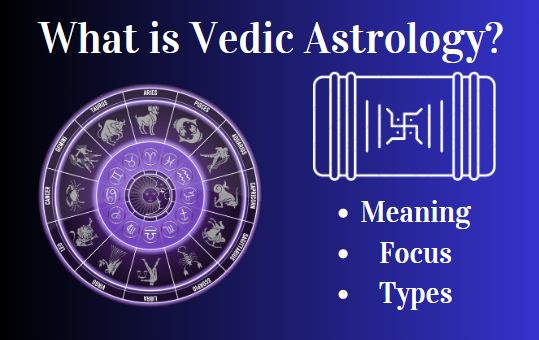
Vedic Astrology or Jyotish Shastra has been a prominent practice in India since ancient times. The term ‘Jyotish’ means ‘light’ and ‘knowledge’ while ‘Shastra’ refers to a branch of Hindu scriptures.
Jyotish shastra is also known as Jyoti-shastra meaning light that removes the darkness.
At the time of birth, a Jyotish/astrologer analyzes the positions, and movements, of planets, stars, nakshatras, and Rashis(signs) to predict the Shubashub likely events, meaning whether good or bad events.
Vedic astrology, Jyotish shastra mainly has 2 parts Khagol/Ganit Jyotish(Astronomy) & Falit Jyotish(Astrology)
In Ganit jyotish all the mathematical calculations are calculated. Ganit Jyotish has 3 parts:
- Siddhant- This is where we calculate the time from the start of this universe to the current day.
- Tantra- This is where we Calculate the time from the start of the current Chaturyuga to the current yuga (Kali Yuga).
- Karan- This is where we calculate the time from the current Shak samvat to the current time.
In Falit jyotish, all the analysis and the study of the positions, and movements of planets, stars, nakshatras, and Rashis(signs) to predict the Shubashub likely events, meaning whether good or bad events.
Falit Jyotish also has several parts:
- Hora/Jatak (Natal)- Where Janma kundli is created and Jatak’s/Individuals’ life events are predicted.
- Muhurat (Election)- Where prediction of an auspicious time for a Jatak/Individual or a group of people is done.
- Tajik (Current)- predictions are made after analyzing the transits and Varsh Kundli.
- Prashna (Horary)- kundli is created for the time of the question to make predictions.
- Maidini (Mundane)- Where predictions of Interstate, National, and International level & weather, Earthquakes & worldwide events are done.
- Sahita (Meteorological)- Predictions of Samvat, Changes in Nature, & Samudrik Shastra etc are done.
- And more!
The History & Origin of Vedic Astrology
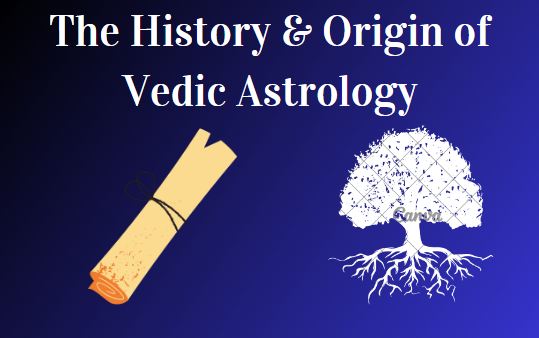
Let’s talk about the history of Vedic astrology, without being biased.
First of all, if you really wanna know about the history and starting of Vedic astrology, you should consider calculating time using the ways of Vedic ways itself.
Vedic astrology, also known as Hindu astrology or Jyotish, has its roots in ancient Indian culture. It is believed to have been developed by sages and seers thousands of years ago, who recorded their insights and observations in the Sanskrit language.
If you read Navgraha Puran, you’ll realize at the start of this universe the rishis(sages) were already aware of cosmic powers like Surya (Sun) and other Grahas (planets).
And since they were aware they also worshipped them. Similarly in Vedic astrology, you worship Surya dev for his blessings and improvement of his influence on your life as a remedy.
Aditi, the Mother of Surya Dev and Wife of Rishi Kashyap, was meditating on the Surya Dev after receiving a boon from Mahavishnu. This proves that Surya dev were Worshipped in Satyuga too.
Sat yuga was 1,728,000 years long
Treta yuga 1,296,000 years
Dvapara yuga 864,000 years
Kali yuga 432,000 years
In Treta yuga, Shri Ram’s avatar was born, but not many people know what Shri Ram’s Father, Maharaja Dashrath did for having children.
As a remedy for having kids, Maharaj Dasharath organized an Ashwamedha and Putrakamishti Yagya. And this Yagya was performed by Rishi Shringi, who also had an avatar in Kaliyuga due to a curse & He left his body about 60-70 years ago in Meerut, India.
As a remedy of Vedic astrology, we do Yagya/Hawan/Homan f fulfillment needs.
Another Prove from Treta Yuga, Maharaja Dashrath, Father of Shri Ram was advised to worship Shani dev (Saturn) because of his Gochar/Transit which was Harmful to His Rajya/Kingdom Ayodhya.
Then Maharaja Dashrath worshipped Shani Dev and Created a Stotra for his blessing.
Today that Stotra is known as Dashrath Krit Shani Stotra.
The facts above prove that the origin of Astrology is Bharat/India & the history of Vedic astrology is beyond million years.
Some people say that astrology’s origin is Greek because the English names of planets are derived from Greek mythology. Well, if you’ve read the above, I’ll leave the judgment to you.
The spread of Vedic wisdom all over the globe happened in this order:
- Bharat/India
- China
- Tibet
- Rome
- Greece
- Egypt
- Iran
- and the rest.
Today, it continues to be an important part of Hindu culture and spirituality, as well as a popular field of study for those interested in divination and personal growth.
As with all ancient traditions, respect and reverence for the culture and people who developed Vedic astrology is paramount, and it remains an important part of India’s rich history and cultural heritage.
The differences between Vedic and Western astrology
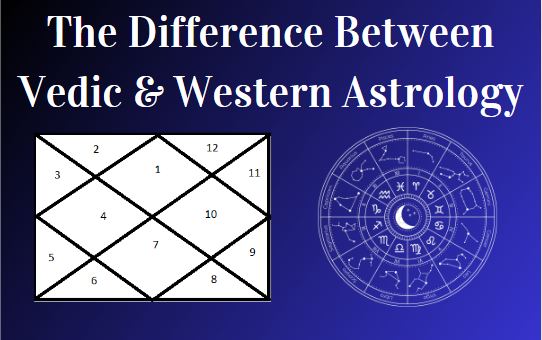
Astrology is a widely popular method of analyzing celestial bodies and their impact on human affairs. There are two main branches of astrology, namely Vedic and Western astrology.
While both aim at providing insight into the future, they differ in their approach and philosophy.
Vedic astrology, also known as Jyotish, is the older of the two branches and finds its roots in ancient Indian scriptures.
Vedic astrology uses a sidereal zodiac system, based on the constellation system, while Western astrology bases its analysis on the tropical zodiac system, where the positions of planets are based on the position of the sun at the time of birth.
One of the primary differences between Vedic and Western astrology is the way the two methods interpret sun signs.
In Western astrology, sun signs are a crucial factor in determining a person’s personality traits. However, Vedic astrology does not put as much emphasis on sun signs, but Vedic astrology uses Sun & Moon signs to create Sun & Moon Chart which is used for analyzing transits & Dashas.
Vedic astrology relies on the sidereal system, which considers the actual position of the planets in their respective constellations.
Vedic astrology is based heavily on karma and the concept of reincarnation. It believes that our present life is a result of our past deeds and that the universe works on the principle of cause and effect.
This principle is evident in how Vedic astrology approaches the study of celestial bodies and their impact on human affairs.
Western astrology, on the other hand, places greater emphasis on free will and believes that individuals have more control over their destinies.
In conclusion, Vedic and Western astrology are different in their approach and philosophy, but both aim to provide insight into the future. Vedic astrology uses a sidereal zodiac system based on the actual position of planets in their respective constellations, while Western astrology bases its analysis on the tropical zodiac system.
While each branch has its own merits and limitations, the choice of which method to follow ultimately depends on the individual’s personal beliefs and preferences.
How we are influenced by the planets?
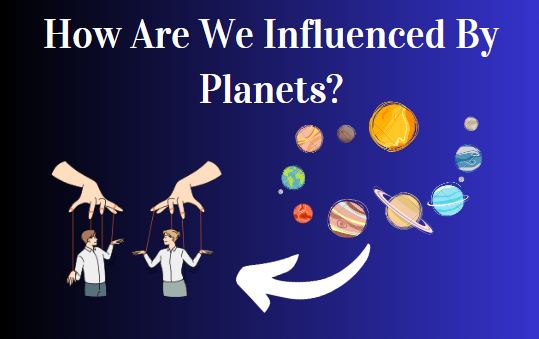
The planets have a significant impact on our lives, whether we realize it or not.
According to astrology, the position and movement of the planets in our solar system can affect our personality traits, emotions, and even our future outcomes.
Each planet represents different aspects of life, such as love and relationships, career and success, and health and wellness.
Astrologers use this planetary information to draw individualized natal charts, which give insights into a person’s unique strengths, weaknesses, and compatibility with others.
While some may be skeptical of astrology, there is evidence that the planets’ gravitational pull can affect the earth’s tides and weather patterns, suggesting that they also have an influence on our bodily functions and moods.
Here are some facts that prove planets influence the Earth and if Earth’s environment is influenced, it would be stupid not to believe Earth’s environment influence everyone.
Overall, understanding the role of the planets in our lives can give us a deeper appreciation for the interconnectedness of the universe and encourage us to live in greater harmony with nature.
Need a Vedic astrology consultation?
Dm now on WhatsApp or other social media handles here.
The 12 Rashis(Signs) of the Zodiac
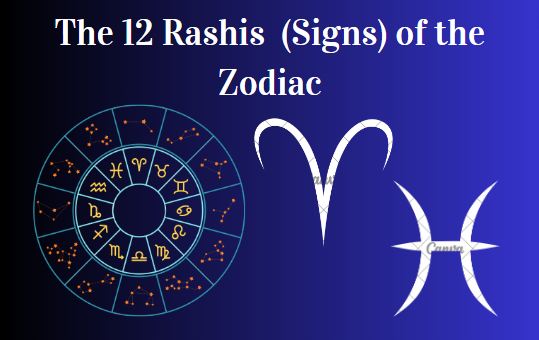
The zodiac is an intricate part of astrology, consisting of 12 signs that are believed to hold a significant influence over an individual’s personality, behavior, and life events.
Vedic astrology, also known as Jyotish, focuses on the movement of the planets and their impact on human life.
Each of the 12 signs represents different traits and qualities, making it essential to understand them to gain insight into oneself and others.
Here are the 12 Rashis/ Signs of Vedic astrology:
Aries (Mesha): Aries is a fiery sign ruled by Mars. It symbolizes energy, enthusiasm, and leadership. Individuals born under this sign are often assertive, courageous, and ambitious. They possess a pioneering spirit and can be impulsive at times.
Taurus (Vrishabha): Taurus is an earth sign ruled by Venus. It signifies stability, practicality, and material comfort. Those born under this sign are usually reliable, patient, and persistent. They appreciate beauty and enjoy the finer things in life.
Gemini (Mithuna): Gemini is an air sign ruled by Mercury. It represents communication, versatility, and intellect. Gemini individuals are known for their quick thinking, adaptability, and sociability. They have a curious nature and enjoy learning new things.
Cancer (Karka): Cancer is a water sign ruled by the Moon. It symbolizes emotions, nurturing, and intuition. Individuals born under this sign are often compassionate, family-oriented, and sensitive. They are deeply connected to their emotions and have a natural nurturing instinct.
Leo (Simha): Leo is a fire sign ruled by the Sun. It represents creativity, leadership, and self-expression. Leo individuals are typically confident, charismatic, and generous. They have a strong desire to be recognized and can be natural-born leaders.
Virgo (Kanya): Virgo is an earth sign ruled by Mercury. It signifies practicality, attention to detail, and analytical thinking. Those born under this sign are often organized, methodical, and service-oriented. They have a keen eye for perfection and excel in problem-solving.
Libra (Tula): Libra is an air sign ruled by Venus. It represents harmony, diplomacy, and balance. Individuals born under this sign are often sociable, cooperative, and fair-minded. They strive for peace and harmonious relationships and have a strong sense of justice.
Scorpio (Vrishchika): Scorpio is a water sign ruled by Mars and traditionally co-ruled by Pluto. It signifies intensity, transformation, and depth. Scorpio individuals are often passionate, intuitive, and secretive. They have a profound emotional nature and possess strong willpower.
Sagittarius (Dhanu): Sagittarius is a fire sign ruled by Jupiter. It symbolizes exploration, optimism, and philosophical thinking. Those born under this sign are usually adventurous, optimistic, and freedom-loving. They have a love for travel and seek wisdom and knowledge.
Capricorn (Makara): Capricorn is an earth sign ruled by Saturn. It represents discipline, ambition, and practicality. Capricorn individuals are typically hardworking, responsible, and goal-oriented. They strive for success and are known for their patience and determination.
Aquarius (Kumbha): Aquarius is an air sign ruled by Saturn and traditionally co-ruled by Uranus. It signifies innovation, individuality, and humanitarian values. Individuals born under this sign are often independent, progressive, and intellectually oriented. They have a strong desire to make a positive impact on society.
Pisces (Meena): Pisces is a water sign ruled by Jupiter and traditionally co-ruled by Neptune. It represents compassion, spirituality, and imagination. Pisces individuals are often empathetic, intuitive, and artistic. They have a deep connection to the spiritual realm and are highly sensitive.
Each Rashi carries its own set of strengths, weaknesses, and characteristics, influencing the personality
A Vedic astrologer can use one’s birth chart or astrology chart to read and interpret the different planetary positions and their influence on a person’s astrological profile.
By analyzing the planetary positions during a specific period, one can gain insight into crucial decisions and events in their life.
Therefore, studying the 12 signs of the zodiac and their influence through the lens of Vedic astrology can be an exciting and eye-opening experience for anyone interested in understanding themselves and others better.
As such, consulting an astrologer can help one achieve a deeper understanding of the self and foster a greater appreciation for the intricacies of the universe.
The Planets/Grahas in the Zodiac
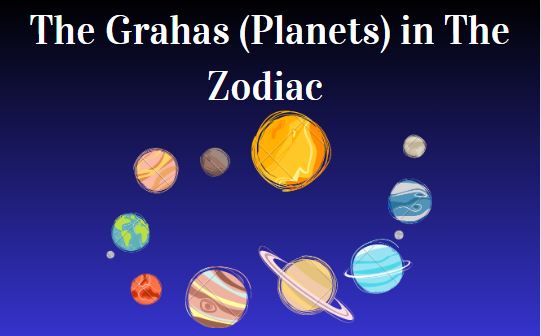
The Planets, or Grahas, in the Zodiac or Rashis, have been studied and revered for thousands of years in Hindu astrology, also known as Vedic astrology.
Each planet represents a unique energy and influence on a person’s life and the zodiac signs or Rashis they transit through.
The birth chart, or Kundali, is used to map out the exact placement of each planet at the time of a person’s birth, giving insight into their strengths, challenges, and potential.
It is crucial to approach the interpretation of a birth chart with a respectful tone of voice as it is a deeply personal and spiritual practice for many individuals.
Here’s a little about the 9 planets in Vedic astrology:
SURYA / SUN
Sun or Surya holds a significant position as it represents the soul or Atma in the birth chart.
Surya is the King of all planets and is seen as a symbol of authority, leadership, and power.
The Sun governs not only the human body but also the life force energy and the ego. It is said that the Sun gives life and light to every living being and is hence called the life-giver.
It is also believed that the position of the Sun at the time of birth has a profound impact on one’s personality, career, and overall destiny.
Therefore, utmost reverence and respect are given to Surya in Vedic astrology practices.
One should worship and offer prayers to Surya Dev to gain his blessings and to seek guidance in life. People should also follow their Vedic astrologer’s advice on the proper remedies to perform for maintaining the positive impact of Surya in their birth chart.
Overall, Surya is an essential aspect of Vedic astrology, and people must appreciate and honor its significance in their lives.
CHANDRA / MOON
Chandra or the Moon holds immense significance and is considered to be one of the prime celestial bodies.
As per the ancient scriptures, the Moon represents our emotions, mind, and memories, and it plays a crucial role in shaping our personality.
It is said that the position of the Moon at the time of our birth determines our emotional nature and the way we react to different situations in our life.
Apart from this, the Moon also has a deep impact on various aspects of our life, including our relationships, profession, health, and spiritual growth.
Therefore, it is essential to understand the influence of the Moon on our lives and take necessary measures to harness its positive energies.
To achieve this, one can follow various remedial measures as prescribed in Vedic Astrology, such as performing Moon/Chandra puja, wearing a pearl, Mantra jap, etc.
Expressing gratitude and reverence towards Chandra can help bring prosperity and peace into our lives.
MANGAL / MARS
Mangal or Mars is considered to be a powerful and influential planet.
It is associated with energy, motivation, and passion, and is believed to have a significant impact on an individual’s personality and behavior.
The red planet is also connected with the qualities of courage, fearlessness, and independent thinking.
However, like with all planets, Mars has a dark side too, and its placement in the natal chart can predict certain challenges and obstacles in life.
Nonetheless, the role of Mangal in Vedic Astrology is integral to understanding one’s nature and potential.
When Mangal is in a good position in the chart, it can mitigate the negative effects of other planets and bring success and achievement to an individual.
It is important to approach this planet with respect and understanding, as it has a unique and deep impact on our lives. By harnessing the power of Mars, one can unlock their true potential and achieve greatness.
BUDH / MERCURY
Budh, also known as Mercury, holds significant importance in Vedic astrology.
It is considered to be the planet of intellect, communication, and business acumen.
Budh is often associated with traits like intelligence, quick thinking, adaptability, and analytical abilities.
In Vedic astrology, the placement of Budh in a person’s birth chart determines their communication style, thought process, and problem-solving skills.
Individuals who have a strong Budh placement in their chart are known for their sharp wit and a natural aptitude for learning.
They possess excellent verbal communication skills and can put forth their ideas with utmost clarity. Respectful admiration is given to Budh for its role in helping individuals become polished communicators who excel in diverse fields.
It is believed that praying to Budh can enhance one’s communication abilities and decision-making skills, making it an essential planet in Vedic astrology.
GURU, BRIHASPATI / JUPITER
The planet Jupiter is revered and known as Guru or Brihaspati.
There is a deep respect for Guru as the planet is considered to be a spiritual teacher and guide. Jupiter represents wisdom, knowledge, and growth.
Its influence is known to bring blessings, luck, and prosperity to those who seek its guidance.
Guru is associated with expansion, consciousness, high knowledge, morals, judgment, and it can help one attain spiritual fulfillment.
Brihaspati is also associated with teaching, education, and philosophy. Its placement in one’s birth chart is considered important and can have a significant impact on their life.
Those born under the influence of Brihaspati are believed to be intelligent, wise, and successful.
They possess a love for learning and have the ability to inspire those around them. In Vedic astrology, the teachings of the Guru are highly respected and provide a roadmap for spiritual growth.
SHUKRA / VENUS
Shukra, also known as Venus, holds significant importance in Vedic astrology. It is the planet associated with love, romance, and beauty.
Shukra is considered a powerful planet that governs the creative energies of human beings and influences their artistic abilities.
According to Vedic astrology, when Shukra is positioned favorably in one’s birth chart, it brings immense monetary gains, popularity, and success.
Individuals under the influence of Shukra are known to be charming, artistic, and graceful.
This planet also governs marriage, and those with a strong Shukra in their charts are believed to lead a happy married life.
Despite its positive traits, Shukra is also responsible for negative influences like excessive indulgence in pleasures and vanity.
Therefore, Vedic astrology suggests that one should maintain a balanced approach while channeling the energies of Shukra to experience success and happiness in life.
RAHU / NORTH NODE
Rahu or the North Node is considered a highly significant and spiritual planet.
Although it is often seen as a malefic planet, Rahu can bring incredible growth and transition in one’s life.
This planet represents our deepest yearnings and desires, giving us a sense of direction and purpose.
Rahu is closely linked to our karmic destiny, signifying past-life karma and the lessons we need to learn in this life.
With its energy, we are encouraged to re-examine and evaluate our past actions, helping us break free from the cycle of karma and achieve spiritual enlightenment.
When respected and approached with reverence, Rahu can be a positive force in our lives.
It helps us to become more intuitive, aware, and in tune with our spiritual goals. Vedic astrology teaches us to honor the presence of Rahu and understand the important role it plays in our life’s journey.
KETU / SOUTH NODE
Ketu, also known as the South Node, is a significant planet in Vedic Astrology.
It represents spirituality, detachment, and letting go of material desires. Though it is considered a malefic planet, it can bring positive changes and help one evolve spiritually.
Ketu is said to have a strong influence on past life karma and can reveal some of the secrets hidden in the subconscious mind.
Its placement in a person’s birth chart can indicate the areas that need to be detached from and the lessons that need to be learned in this lifetime.
It is also believed that the position of Ketu affects one’s spiritual journey and the path toward enlightenment.
Overall, Ketu should be approached with respect and reverence as it has great significance in shaping one’s destiny and helping them on their spiritual path.
By analyzing the placement of planets in the birth chart and their interactions with each other, an astrologer can provide a reading that uncovers insights into a person’s personality, career, health, relationships, and more.
It is important to remember that astrology is not deterministic, and individuals have the power to shape their destiny by aligning with the strengths and opportunities revealed in their birth chart.
The Planets/Grahas in the Zodiac/Rashis are rich in symbolism and meaning, and those who approach their study with respect and an open mind may discover profound insights into the mysteries of the universe and their own place within it.
Kundli / Birth Chart
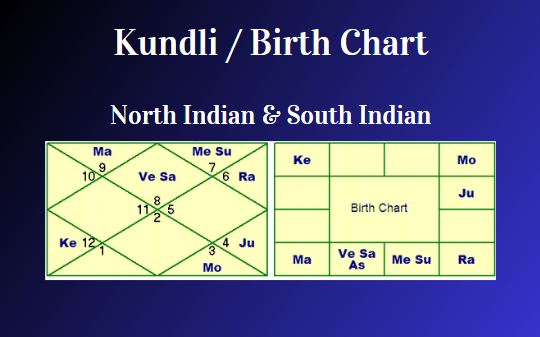
Kundli, also known as a Birth Chart, is a crucial aspect of Hindu astrology.
It is the map of the sky with its position at the time of an individual’s birth. Kundli or Birth Chart consultation is a widely popular practice among Hindu families, and people often seek advice from Jyotisha or Vedic Astrologers for making significant life decisions.
Astrology is based on the position and motion of celestial bodies, which affect humans based on their date and time of birth.
Vedic Astrology is the oldest system of astrology, which uses Sanskrit terminologies for horoscope reading.
It is primarily used in Hinduism for making predictions and understanding cosmic energies.
There are different styles of charts in Vedic astrology which are popularly known as:
-
North Indian Chart
-
South Indian Chart
During an astrology consultation, the Vedic Astrologer asks for the time and date of birth to generate an Astrology Report.
The lagna or rising sign is the most essential factor while analyzing the Kundli.
Vedic Astrology uses a sidereal zodiac based on the fixed stars calculated through the natal and ecliptic system, which differs from tropical astrology commonly used by Western astrologers.
Kundli reading also involves studying the position of the planets or Graha to understand their impact on different chakras.
Vedic Astrology uses an impressive scientific approach that was formulated by ancient sages and their understanding of the motion of the planets.
It provides a comprehensive introduction to Vedic Astrology that goes beyond making predictions and delves into understanding the cosmos.
Vedic Astrology chart or birth chart can be used to provide insight into various aspects of life, including career, love, and relationships.
Many Vedic Astrologers also offer free horoscope readings online, making them easily accessible and available for everyone.
In conclusion, Kundli, or Birth Chart is an integral part of Hindu Astrology that uses Vedic Astrology, the oldest system of astrology.
It involves studying the motion of the planets based on the time and date of birth of individuals to make predictions and understand cosmic energies.
Vedic Astrology uses Sanskrit and the sidereal zodiac, and it creates an astrology report that can provide insight into different aspects of life. Hailing from ancient times,
Vedic Astrology is still widely used today, and it serves as a guide for anyone seeking to understand their cosmic journey in life.
What is the use of a Horoscope/ astrology report?
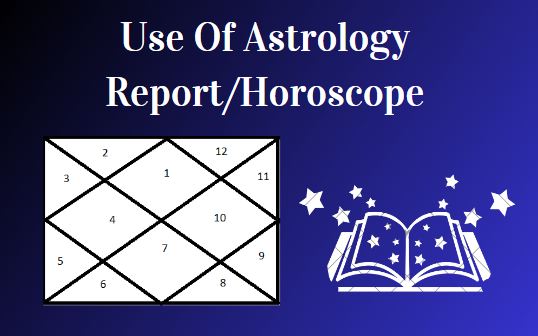
Kundli / Horoscope is an ancient form of astrology that has been used for centuries for its insightful reading of planetary positions.
Astrology includes the study of stars and planets and how their movements and placement affect human beings.
Horoscope utilizes the natal chart, or the birth chart, to predict the future and provide guidance for individuals.
According to Vedic astrology, the lagna, or the position of the sun at the time of birth is significant in determining one’s life journey.
The placement of planets, including the Surya, Rahu, and Ketu, are important elements of a horoscope reading. Western astrology bases its predictions on different calculations and principles than Vedic astrology.
Vedic Jyotish is a popular form of online astrology that has gained immense popularity in recent years. This ancient Vedic astrology system has been utilized for ages to accurately predict events on Earth.
The accuracy of horoscope predictions, according to Hindu texts, depends on how the placement and movements of planets are measured.
A natal chart can help individuals with decision-making by providing insight into possible outcomes and potential areas of growth.
Astrology is not limited to the Indian subcontinent and has spread throughout the world. But yes, Astrology originated in India.
A Kundli / Horoscope / Astrology report consists of information about Positions, Degrees of planets at the time of birth, Birth chats, and Divisional charts for Deeper insights and the Most advanced predictions, Dashas – Planetary periods to make decisions accordingly and it also includes other vedic astrology tools like Ashtakvarga, Sarvashtak, Shadbala, Panchvargiya Bala and many more!
All astrology reports may not include these due to astrologers preferences but all the information is very helpful.
Vedic astrology is an important tool for individuals to make better decisions like moving into a new home, getting married, or preparing for significant events on Earth, etc.
With its powerful insights and accurate predictions, a horoscope remains an invaluable resource for many.
What details do you need to know about your Horoscope?
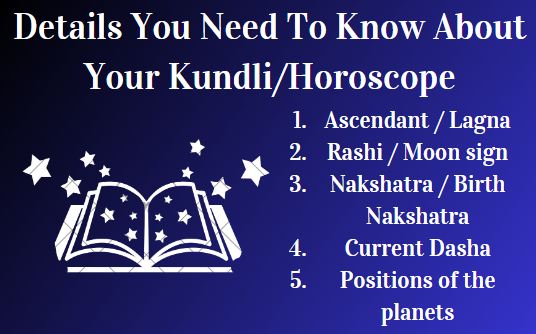
When it comes to understanding our horoscope, there are several important details that we need to know.
At the core of any horoscope is an understanding of the planetary positions and how they relate to the twelve signs of the zodiac.
To create an accurate and precise horoscope, astrologers need to know the date, time, and place of birth for the person in question.
This information is considered to be the fixed background against which the motion and placement of planets can be analyzed and interpreted.
In ancient Indian astrology, also known as Vedic astrology, the movements of the planets are seen as having a significant impact on our lives.
The sun and the moon, as well as the positions of other planets and stars, are considered to be integral to making precise predictions and gaining insight into different aspects of time.
To get the best horoscope reading, it’s important to confide in the best astrologers, many of whom can now be found online.
Additionally, different regions of India have their own approaches to astrological practice, with North Indian astrology being particularly distinct from its southern counterparts.
Regardless of the specific system or cultural origin of astrology used, it begins with the exact date of one’s birth, along with the time and place of birth.
This information is entered into an algorithm or system to calculate the planetary positions and aspects of time at the moment of birth.
The stars are considered to be part of the larger constellation of stars and planetary bodies making up our solar system, and they have been used to make accurate and precise predictions about personal and societal events for centuries.
Here’s what you should know about your horoscope:
-
Ascendant / Lagna
-
Rashi / Moon sign
-
Nakshatra / Birth Nakshatra
-
Current Dasha
-
Positions of the planets
If you have your horoscope then you should know about all this information.
Overall, getting an accurate horoscope reading requires attention to detail, expert interpretation, and a deep understanding of planetary movements and positions.
Whether seeking astrologers in India or using an online medium to connect with an astrologer, the more information you can provide about the fixed details of your birth, the more precise and insightful your horoscope reading is likely to be.
By paying attention to these important details, we can gain valuable insight and guidance through the practice of astrology.
Do we get solutions for our problems with the help of Vedic Astrology consultation?

As I mentioned a few facts above from Ramayan, similarly in Jyotish Shastras like Brihat Parashar Hora Shastra & Phaldeepika, and many others talk about many remedies available as solutions to our problems.
There are solutions like:
Gemstones
Vastu
Rudraksha
Poojas & Rituals, also known as Anusthan
Daan (Charity/Donations)
Sadhna
And many more!
There are controversies about gemstones, poojas, and others by everything comes dome to the procedure and rules.
If you want materialistic gains you have to follow exact procedures & rules to gain your expected outcomes.
This is why those controversies took place, due to Mughal invasions and British colonization enormous amount of Scriptures and valuable ancient texts were destroyed.
And this is why those exact procedures and rules are now only available to a handful of people.
Still, there are a lot of knowledgeable Vedic astrologers in India & outside of India that can help you with your solutions.
Modern Hindu astrology
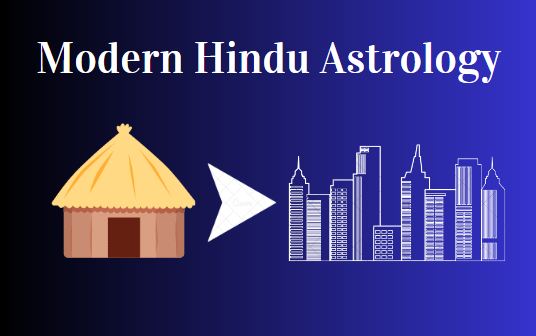
Modern Hindu astrology is a vast and complex system of divination that has been practiced for centuries.
Hindu astrology, also known as Jyotish, is the study of the placement and positions of the planets, stars, and other celestial bodies and their influence on our lives.
This ancient practice has been continually updated and modernized through advances in technology and the changing needs of modern society.
Today, modern Hindu astrology is grounded in a deep respect for the mysteries of the universe and the interconnectedness of all things.
Through the practice of astrology, individuals are encouraged to look inward, to explore their own strengths and weaknesses, and to cultivate a sense of self-awareness and spiritual growth.
The practitioners of modern Hindu astrology are highly trained and deeply committed to helping others find meaning and purpose in their lives.
Their approach is gentle, compassionate, and respectful, and they are skilled at working with individuals from all walks of life. Overall, modern Hindu astrology is a valuable tool for those seeking to explore the mysteries of the universe and find their place within it.
Astrology as a science?
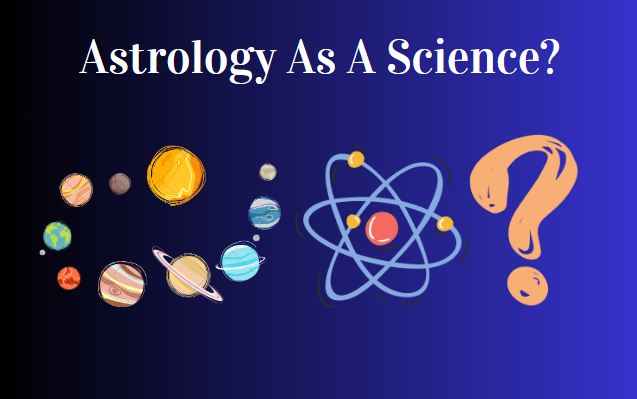
Astrology is a fascinating subject that has intrigued people for centuries.
As an ancient science, it has been studied and developed for thousands of years, drawing upon the wisdom and experience of those who came before us.
Despite its critics, astrology is a science in its own right, based on the study of observation and experimentation.
Rather than being a mere superstition, astrology is rooted in the observation of the movements of celestial bodies and their effects on human affairs.
Through careful observation and measurement, astrologers have learned to understand the complex relationships between the planets, stars, and other celestial objects and how they relate to human experience.
This is why astrology is considered to be a valuable tool for understanding ourselves and the world around us.
When approached with an open mind and a spirit of inquiry, astrology can be a powerful tool for personal growth and self-discovery.
By looking at the unique position of the stars and planets at the time of our birth, we can gain a deeper understanding of our strengths and challenges, as well as insight into our relationships and life path.
Ultimately, what makes astrology so valuable is its ability to offer us a new perspective on ourselves and the world, helping us to navigate life’s journey with greater clarity and purpose. In short, astrology is not only a fascinating subject, but also a bona fide science that deserves our respect and attention.
Dashas – planetary periods
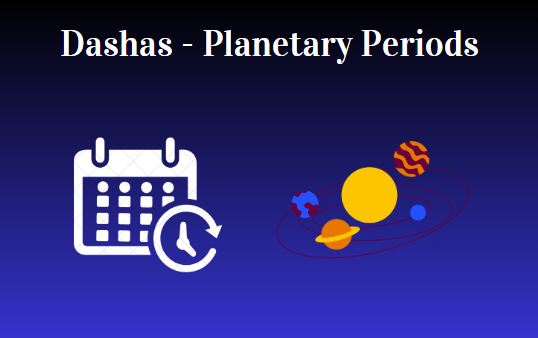
The Dashas or planetary periods in Vedic astrology are highly revered and hold significant importance in the practice of Vedic astrology.
There are various types of Dasha periods – Vimshottari Dasha, Karaka Dasha, Yogini Dasha, and many more – that are used to determine the course of an individual’s life.
Vimshottari Dasha is the most commonly used and consists of a cycle of 120 years divided into nine planetary periods, each lasting for a specific number of years.
These planetary periods are determined by the position of the Moon at the time of birth. It is believed that the planetary periods signify the karmic influences of the planets and the effects they have on an individual’s life.
Therefore, a great deal of importance is given to studying and understanding the Dasha periods in Vedic astrology.
While this may not be a widely recognized practice outside of the Indian subcontinent, it is important to approach it with a respectful tone and an open mind, as it has been a part of Indian culture and spirituality for thousands of years.
The 27 Nakshatras, or lunar mansions
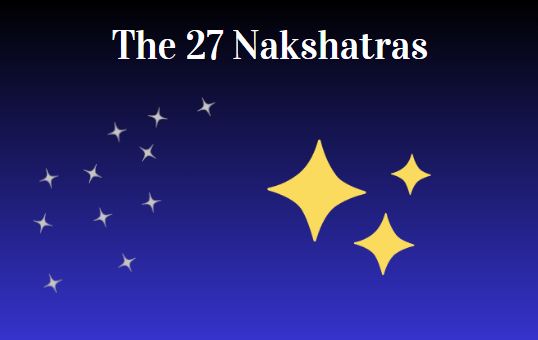 Each Nakṣhatra is a unique facet of the universe and deserves our utmost respect and attention. Nakṣhatras, or lunar mansions, are an integral aspect of Hindu astrology and astronomy. These 27 constellations hold importance in Vedic astrology and influence life & destiny. Each Nakṣhatra associates with a particular deity, symbol, and ruling planet, shaping the personality & characteristics of an individual born under its influence. Starting with Ashwini, the first Nakṣhatra, and concluding with Revathi, the 27th Nakṣhatra, each one possesses unique qualities and attributes.
Each Nakṣhatra is a unique facet of the universe and deserves our utmost respect and attention. Nakṣhatras, or lunar mansions, are an integral aspect of Hindu astrology and astronomy. These 27 constellations hold importance in Vedic astrology and influence life & destiny. Each Nakṣhatra associates with a particular deity, symbol, and ruling planet, shaping the personality & characteristics of an individual born under its influence. Starting with Ashwini, the first Nakṣhatra, and concluding with Revathi, the 27th Nakṣhatra, each one possesses unique qualities and attributes.
Ashwini shows speed and hair.
Bharani is associated with fertility and renewal.
Krittika is linked to bravery and courage.
Rohini is known for its beauty and sensuality.
Mrigashirsha is tied to curiosity and exploration.
Ardra is associated with the creative energy of Lord Shiva, and Punarvasu signifies prosperity and fortune.
Pushya is considered the most auspicious of all Nakṣhatras, while Ashlesha is associated with transformation and change.
Magha symbolizes nobility and leadership, while Purva Phalguni is known for its love of luxury and refinement.
Uttara Phalguni is connected to social responsibility, and Hasta is linked to dexterity and craftsmanship.
Chitra is associated with beauty and artistry, and Swati symbolizes the power of the wind.
Vishakha signifies strength and determination, whereas Anuradha is associated with friendship and loyalty.
Jyeshta symbolizes power and strength.
Mula represents the beginning of spiritual awakening.
Purva Ashadha is linked to victory and success, and Uttara Ashadha signifies inner transformation.
Shravana is associated with knowledge and wisdom, while Dhanistha represents the power of music and performance.
Shatabhisha is linked to healing and rejuvenation, and Purva Bhadrapada signifies spiritual pursuits.
Uttara Bhadrapada represents the end of a journey, while Revathi symbolizes creativity and imagination.
Abhijit is a unique Nakṣhatra that shares its influence with multiple deities and is considered the most powerful and auspicious of all.
Abhijit is not considered a nakshatra because it’s more like a muhurta, I’ll post about it soon. The Nakṣhatras hold tremendous significance in Hindu astrology and are a testament to the profound wisdom and knowledge of ancient Indian sages and scholars. The Nakṣhatras are believed to influence not only our personalities but also our fate and destiny. By taking the time to understand and appreciate each Nakṣhatra, we can gain a deeper understanding of ourselves and the world around us. The Nakṣhatras are a valuable tool for self-improvement and spiritual growth, and we must approach them with a reverent attitude.
Vedic astrology speaks more to your karma and dharma
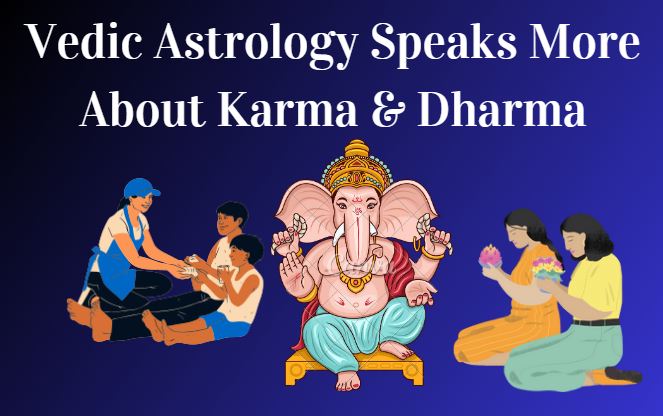
Vedic astrology is a complex and ancient system of divination that is rooted in the Hindu tradition.
It goes beyond just predicting future events and instead provides insight into a person’s karma and dharma.
Karma refers to the actions and events that determine a person’s destiny, while dharma refers to the individual’s purpose and life path.
Vedic astrology emphasizes the importance of aligning oneself with the natural cycles of the universe and working towards fulfilling one’s dharma.
It is a respectful and holistic approach to understanding the complexities of life and the interconnectedness of all beings.
By studying the movements of the planets and stars, Vedic astrology offers a unique perspective on the paths we choose and the consequences of our actions.
Embracing the principles of this ancient practice can lead to a greater sense of fulfillment and purpose in life.
Is Vedic astrology more accurate than Western astrology?
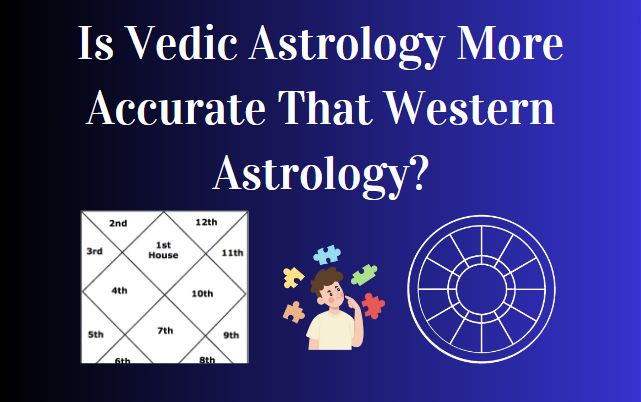
While both Vedic and Western astrology are widely practiced around the world, many experts believe that Vedic astrology is the most accurate form.
This belief stems from the fact that Vedic astrology has been followed for millions of years, giving it a long history and deep understanding of wisdom.
You may have heard that when you make a chart as per Western astrology, planets are in different houses compared to vedic astrology charts.
It is because Earth is actually a bit tilted, and the revolution route of Earth is also tilted.
This is why people tend to resonate more with their Vedic astrology chart and why the Western chart is different.
One of the key advantages of Vedic astrology is the use of Divisional Charts, which allows astrologers to see through the deeper level of each house and make advanced predictions.
This level of detail makes Vedic astrology a powerful tool for helping individuals better understand themselves and their future.
Despite this, it is important to note that both forms of astrology have their own merits, and the most important factor is to find the practice that resonates with you the most.
Personally, I have friends from the West too, who started out by learning Western astrology but when they were introduced to Vedic astrology they said “The two cannot be compared & Vedic astrology is extremely detailed.”
By remaining open-minded and respectful towards different forms of astrology, we can all learn more about ourselves and our place in the cosmos.
FAQ
Can Vedic astrology be wrong?
Vedic astrology is an ancient form of knowledge that has been studied for centuries. Even though practicing Vedic astrology can provide valuable insights into potential life outcomes, there are times when its prediction may not reflect reality.
“A Subject itself cannot be wrong, however, the teacher can make mistakes.”
Although it is wrong to dismiss Vedic astrology as unreliable, it’s good to understand that astrological predictions are not always 100% accurate as they can be influenced by various factors such as personal choices and actions.
“Doctors prescribe medicines that have side effects, if you take the wrong medicines it can be deadly.
But it doesn’t mean the whole medical studies are wrong.”
Therefore, it’s essential to approach it with an open and respectful mindset and to use the information given as a means of gaining insight and making informed decisions rather than an absolute truth.
What is a Vedic astrology software?
Vedic astrology software is a powerful tool that uses advanced algorithms and calculations to offer accurate and detailed analysis of an individual’s astrological chart. There are several high-quality software applications that are widely used by astrologers and enthusiasts alike. Some popular options include Jagannath Hora, Parashar Light, and Leo Star Astrology. These software applications provide a comprehensive interpretation of planetary positions and their influence on various life aspects, including health, wealth, career, and relationships. With their user-friendly interface and advanced features, these software programs have revolutionized the world of astrology, making it more accessible and accurate for everyone.
Why is Vedic astrology so negative?
Vedic astrology typically gets an argument for being too negative. However, it ultimately depends on your astrologer and your mindset toward the information provided. Instead of sticking with the negativity, it is important to look for remedies and ways to overcome any problems identified in your chart. The practice of Vedic astrology is not meant to instill fear in its followers, rather it is a tool for self-reflection and growth. When approached with an open mind and a positive attitude, the insights provided can be incredibly beneficial.
Is Vedic astrology true?
Yes, Vedic astrology has been recognized as one of the most accurate and advanced forms of astrology. With roots dating back to ancient India, Vedic astrology is known for its intricate calculations and precise predictions based on the positions of celestial bodies. Many practitioners and believers of this ancient tradition believe that Vedic astrology can offer valuable insights into an individual’s life path, strengths, and challenges. While there is always ongoing debate surrounding the validity of astrology, those who follow Vedic astrology have found it to be a helpful tool for gaining a deeper understanding of themselves and their connection to the world around them.
Is Vedic astrology a science?
Vedic astrology is an ancient science of India that has been practiced for centuries. From the perspective of the definition of science, studying Vedic astrology involves observation and experimentation, making it a science in its own right. While some individuals may question the legitimacy of Vedic astrology, it is important to approach the topic with an open mind and respectful tone. As with any form of scientific study, there is always room for debate and further research, but it is important to acknowledge the cultural and historical significance of Vedic astrology in India.
Where is Vedic astrology from?
Vedic astrology, also known as Jyotisha, originates from the ancient Indian civilization. Its roots trace back millions of years ago to the era of the Vedas, the sacred texts of Hinduism. The Vedic tradition of astrology is respected for its vast knowledge, precision, and detailed understanding of celestial phenomena. Its influence has spread globally, as many people seek to access its wisdom and insights to navigate life’s challenges. The respect for Vedic astrology continues to grow as its application benefits countless individuals seeking guidance in their personal and professional lives.
Can Vedic astrology predict divorce?
Vedic astrology has been practiced for centuries and can offer insights into various aspects of an individual’s life, including relationships. When it comes to predicting divorce, Vedic astrology does have the capability to provide guidance through the study of divisional charts, compatibility, matchmaking, and synastry, also known as Kundali Milan. However, it is important to approach this sensitive topic with sensitivity and respect for the individuals involved, emphasizing the importance of communication and mutual understanding in any relationship.
Does Vedic astrology really work?
There is evidence to suggest that Vedic astrology can be an effective tool for understanding and predicting certain aspects of one’s life. Many practicing astrologers have conducted extensive research and have seen the tangible results astrology can provide. While it is ultimately up to the individual to interpret and apply the insights gained from astrology, it is worth considering the potential benefits that this ancient practice can offer.

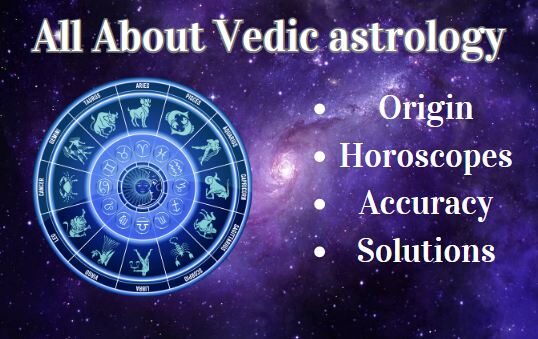
Itís nearly impossible to find well-informed people for this topic, but you seem like you know what youíre talking about! Thanks
Thanks!